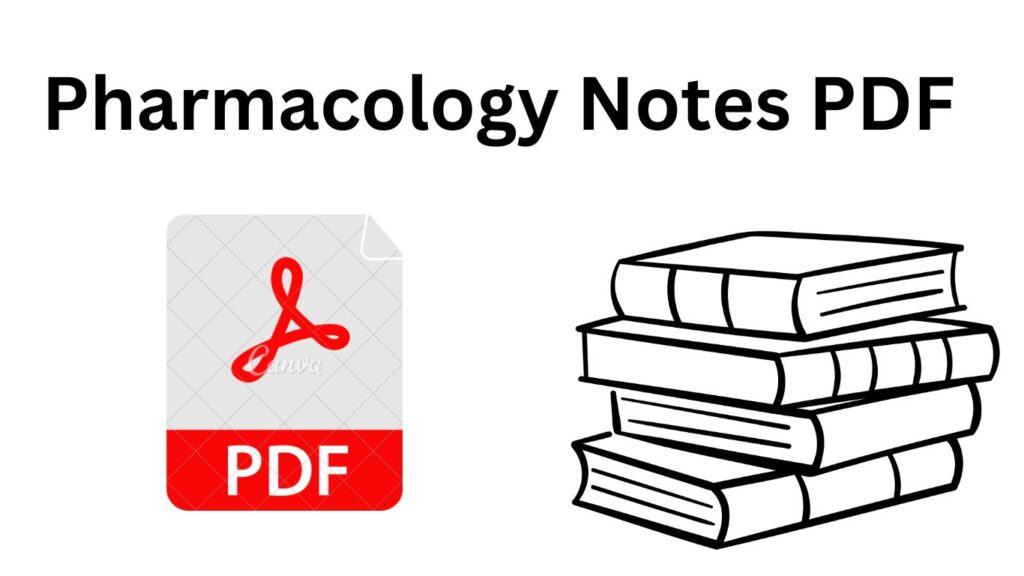Download Pharmacology Notes AKTU B-pharm 4th Sem:
The fourth semester of a Bachelor of Pharmacy (B.Pharm) program typically involves the study of various key topics in pharmacology. Below are explanations for some key topics that are commonly covered in the fourth semester. Keep in mind that specific curriculum details may vary between universities, so it’s essential to refer to your course materials for the most accurate information.
How to download Pharmacology Notes AKTU B-pharma 4th sem for free?
Simply click at the given links to get unit wise Pharmacology Notes PDF.
Unit 1 Download
Download 4th sem AKTU B-pharma Syllabus 2024. Click Here
Download Other 4th semester Notes B-pharma. Click Here
Key topics of Pharmacology Notes PDF
-
Pharmacokinetics:
- Pharmacokinetics deals with the absorption, distribution, metabolism, and excretion of drugs in the body.
- Absorption: The process by which a drug enters the bloodstream from its site of administration.
- Distribution: The movement of drugs throughout the body, involving factors such as blood flow and tissue binding.
- Metabolism: The biochemical transformation of drugs into metabolites, often occurring in the liver.
- Excretion: The elimination of drugs or their metabolites from the body, usually through urine or feces.
-
Unit 1 Download
-
Pharmacodynamics:
- Pharmacodynamics explores the biochemical and physiological effects of drugs and their mechanisms of action.
- Receptors: Drugs often exert their effects by binding to specific receptors on cells. Different types of receptors include G protein-coupled receptors, ion channels, and enzyme-linked receptors.
- Agonists and Antagonists: Agonists activate receptors, producing a response, while antagonists block receptor activation, inhibiting a response.
- Dose-Response Relationships: Understanding how the magnitude of drug response is related to the dose administered.
-
Unit 2 Download
-
Autonomic Nervous System Drugs:
- Study of drugs that affect the autonomic nervous system, including sympathetic and parasympathetic divisions.
- Adrenergic and Cholinergic Drugs: Drugs influencing neurotransmitters such as adrenaline and acetylcholine.
- Adrenoceptor Agonists and Antagonists: Understanding drugs that stimulate or block adrenergic receptors.
-
Unit 3 Download
-
Central Nervous System (CNS) Drugs:
- Examining drugs that act on the brain and spinal cord.
- Sedatives, Hypnotics, and Anxiolytics: Drugs that induce calmness, sleep, or reduce anxiety.
- Antiepileptic Drugs: Medications to treat seizures and epilepsy.
- Antipsychotic and Antidepressant Drugs: Medications for mental health conditions.
-
Cardiovascular System Drugs:
- Studying drugs that affect the heart and blood vessels.
- Anti-hypertensives: Medications to control high blood pressure.
- Antiarrhythmics: Drugs that regulate heart rhythm.
- Anticoagulants and Antiplatelet Agents: Medications to prevent blood clotting.
-
Chemotherapy and Antimicrobial Drugs:
- Examining drugs used to treat infections and various types of cancer.
- Antibiotics: Medications that inhibit or kill bacteria.
- Antivirals and Antifungals: Drugs targeting viruses and fungi.
- Cancer Chemotherapy: Medications used to treat cancer by inhibiting cell growth.
-
Unit 4 Download
-
Toxicology:
- Understanding the adverse effects of drugs and poisons.
- Types of Toxicity: Acute, chronic, local, systemic, and idiosyncratic toxicity.
- Management of Poisoning: Strategies for treating individuals exposed to toxic substances.
-
Unit 5 Download